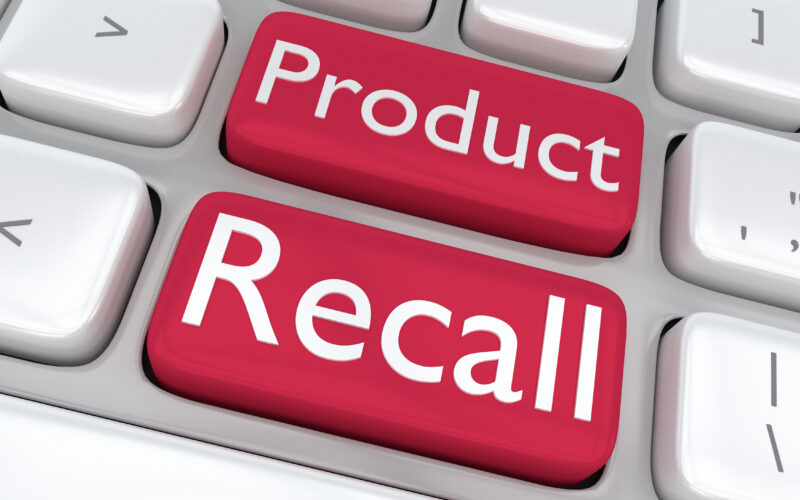Clearwater, FL — Milwaukee Tool Recalls Over 90,000 Chainsaws After Chain Brake Failures Lead to Laceration Injuries
6Nov
Clearwater, FL (November 5th, 2025) – The Consumer Product Safety Commission (CPSC) has announced a significant recall affecting more than 90,000 Milwaukee Tool chainsaws across the U.S. due to a critical safety defect involving the chain brake mechanism. This failure creates a severe laceration risk for users who depend on this essential safety feature to prevent catastrophic injuries during operation.

If you or a family member has sustained cuts, lacerations, or other injuries while operating one of these defective chainsaws, you may have legal rights that extend far beyond simply returning the product for repair. Victims injured by faulty power tools may pursue compensation for medical bills, surgical procedures, permanent scarring, lost income, physical pain, and other damages resulting from the manufacturer’s failure to provide a safe product.
To discuss your legal options if you’ve been harmed by a recalled Milwaukee Tool chainsaw, contact our Clearwater product liability lawyers at Light & Wyatt Law Group for a free consultation. Call 727-499-9900 today.
Table of Contents
Understanding the Milwaukee Tool Chainsaw Recall
The recall encompasses Milwaukee Tool’s M18 FUEL™ Top Handle Chainsaw models featuring either 12-inch or 14-inch guide bars. According to the CPSC’s official recall notice, the chain brake on these cordless chainsaws may fail to activate when needed, creating a dangerous situation where the rotating chain continues moving even when it should automatically stop.
Chain brakes serve as a critical safety mechanism on chainsaws, designed to halt the chain’s movement instantly when the operator encounters kickback or loses control of the tool. When this protective feature malfunctions, users face dramatically increased risk of severe lacerations to their hands, arms, legs, or other body parts coming into contact with the moving chain.
Milwaukee Tool initiated this voluntary recall after receiving two reports of chain brake activation failures.
Identifying the Affected Chainsaw Models
Consumers can determine whether they own a recalled chainsaw by examining the following product details:
- Product Name: Milwaukee Tool M18 FUEL™ Top Handle Chainsaw
- Bar Sizes: 12-inch or 14-inch models
- Catalog Number: 2826-20
- Serial Number Identifier: Contains the letter “A” within the product’s serial number sequence
- Sale Period: March 2023 through September 2024
- Retail Locations: Home Depot stores nationwide and homedepot.com online platform, along with other home improvement retailers
Anyone in Clearwater or throughout Florida who purchased this professional-grade chainsaw should immediately locate the serial number on their unit and verify whether it contains the identifying “A” character. This simple check could prevent a severe injury to yourself or someone else who might use the equipment.
The Serious Dangers of Chain Brake Malfunction
Chainsaws rank among the most hazardous power tools used in residential and professional settings. The rapidly rotating chain, moving at speeds that can exceed 60 feet per second, can inflict catastrophic injuries within a fraction of a second. The chain brake exists specifically to provide emergency protection when dangerous situations develop.
How Chain Brakes Protect Operators
Chain brakes function through two primary activation methods. The hand guard positioned in front of the top handle can be pushed forward manually or, more importantly, activated automatically during kickback events when the saw’s nose contacts an object and forces the guide bar upward and backward toward the operator. This automatic activation represents the difference between a close call and a life-altering injury.
When the chain brake fails to engage, either through manual activation or automatic kickback response, the chainsaw continues operating at full speed despite the dangerous condition. This malfunction eliminates the operator’s last line of defense against severe injury.
Potential Injuries from Defective Chainsaws
Contact with an operating chainsaw chain can cause life changing injuries, including:
Deep Lacerations and Tissue Damage
The sharp cutting teeth can slice through skin, muscle, tendons, and even bone, creating wounds requiring extensive surgical repair and potentially causing permanent disability.
Severed Fingers or Limbs
In the most catastrophic scenarios, chainsaw contact can result in complete or partial amputation of fingers, hands, or other extremities, permanently altering the victim’s life and capabilities.
Nerve Damage
Even lacerations that don’t sever limbs entirely may cut through critical nerves, resulting in permanent loss of sensation, chronic pain conditions, or paralysis in the affected area.
Vascular Injuries
Chainsaw lacerations frequently damage major blood vessels, creating life-threatening hemorrhaging that requires immediate emergency intervention and can result in shock or death without rapid treatment.
Facial and Eye Injuries
Kickback events often direct the chainsaw toward the operator’s upper body and head, potentially causing disfiguring facial lacerations or eye injuries leading to vision loss.
Permanent Scarring and Disfigurement
The jagged nature of chainsaw injuries typically creates severe scarring that remains visible throughout the victim’s lifetime, causing psychological trauma and self-consciousness beyond the physical harm.
High-Risk Users
While any chainsaw operator faces danger from a defective chain brake, certain groups encounter elevated risk:
- Professional arborists and tree service workers who operate chainsaws throughout their workday
- Landscaping professionals who use chainsaws regularly for various cutting tasks
- Homeowners clearing storm damage or maintaining their properties
- Construction workers performing demolition or site clearing
- Individuals with limited chainsaw experience who depend heavily on safety features
The professional-grade nature of Milwaukee Tool chainsaws means many users rely on these tools for their livelihood. An injury from a defective safety mechanism can therefore impact not just the victim’s health, but their ability to continue working in their chosen profession.
Steps for Consumers with Recalled Chainsaws
If you’ve confirmed ownership of an affected Milwaukee Tool chainsaw, discontinue use immediately. Don’t assume safety simply because you haven’t yet experienced chain brake problems. Mechanical failures can occur without warning, and the next time you reach for that chainsaw could be the moment the defect manifests itself.
Milwaukee Tool has established a free repair program for all recalled units. Consumers should contact the company directly or register their product through the manufacturer’s service portal to receive a prepaid shipping label. The company will repair the chain brake mechanism and return the chainsaw once the safety issue has been properly addressed.
However, if you’ve already sustained injuries due to this defect before the recall was announced, seeking repair of your chainsaw doesn’t address the harm you’ve suffered. That’s where legal action becomes relevant.
Your Legal Rights After Chainsaw Injury
When a defective power tool causes injury, Florida’s product liability laws provide injured victims with legal recourse against manufacturers, distributors, and retailers who placed dangerous products into the marketplace. These claims don’t require proof that you used the chainsaw incorrectly or neglected safety procedures. Rather, the defect itself forms the basis for manufacturer liability.
Compensation Available to Injured Victims
Those harmed by defective Milwaukee Tool chainsaws may potentially recover:
Medical Expenses
You can recover costs for emergency room treatment, surgery, hospitalization, follow-up care, physical therapy, and prescription medications needed to treat your injuries.
Future Medical Needs
Compensation covers ongoing treatment of permanent injuries, revision surgeries, prosthetics, and long-term rehabilitation services you may require.
Lost Wages
You can receive reimbursement for work time missed during initial treatment and recovery periods following your injury.
Reduced Earning Capacity
If your injuries prevent you from returning to your previous occupation or limit your ability to perform job duties, you may recover damages for diminished future earnings.
Pain and Suffering
You can seek compensation for the physical agony of your injuries, the discomfort of medical procedures, and the ongoing pain of permanent damage.
Emotional Distress
Damages are available for psychological trauma, anxiety, depression, or post-traumatic stress resulting from the incident and its aftermath.
Permanent Impairment
You may receive additional damages when injuries cause lasting disability, disfigurement, or loss of body function.
Loss of Quality of Life
Compensation addresses situations where injuries prevent you from enjoying activities, hobbies, or experiences you previously valued.
The specific compensation available in your situation depends on the severity of your injuries, the impact on your daily life and career, and the extent of the manufacturer’s knowledge regarding the defect. Consulting with an experienced defective product attorney can help you understand the full value of your potential claim.
Holding Manufacturers Accountable for Dangerous Products
The Milwaukee Tool chainsaw recall highlights concerning questions about quality control and safety testing in the power tool industry. Consumers purchasing professional-grade equipment from established manufacturers reasonably expect that critical safety features will function reliably when needed most. When companies fail to ensure their products meet basic safety standards, innocent users pay the price.
Our Clearwater product liability attorneys at Light & Wyatt Law Group possess extensive experience representing victims injured by defective power tools, equipment, and machinery throughout Florida. We understand that chainsaw injuries can be life-changing, affecting not just your physical health but your ability to work, your financial stability, and your overall quality of life. We’re committed to holding negligent manufacturers accountable and securing maximum compensation for the harm they’ve caused.
To discuss your situation in a free consultation, contact our team today at 727-499-9900.
